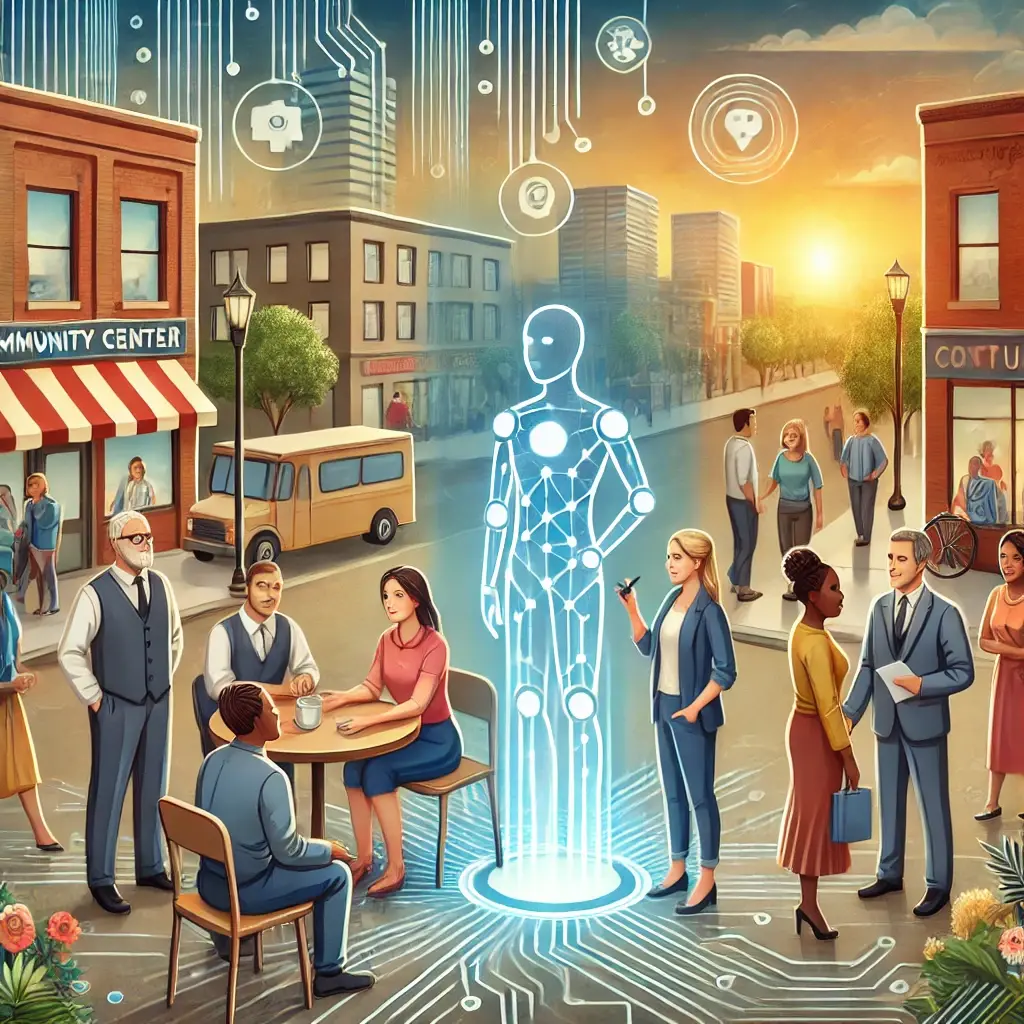How AI is Transforming Human Services: Empowering Frontline Workers and Enhancing Impact

Human service workers, particularly frontline client-facing staff, are the backbone of social impact. They interact directly with underserved populations, collecting data, building relationships, and driving change on the ground. However, they often face challenges like overwhelming caseloads, administrative burdens, and limited resources.
Artificial Intelligence (AI) is emerging as a game-changing tool that empowers these workers, enabling them to focus on their mission of improving lives while minimizing burnout. By providing tailored support and streamlining operations, AI helps organizations maximize their impact.
Here’s how AI is redefining human services with a focus on empowering frontline staff:
1. Lightening the Administrative Load
Frontline workers often juggle numerous tasks, from documentation and referrals to case updates. These responsibilities, while critical, can take time away from direct client interactions.
AI-powered tools can step in to automate repetitive administrative tasks. For example, an AI assistant can generate case plans or summaries based on data entered during client meetings. This allows workers to spend more time on meaningful engagement rather than paperwork.
2. Tailored Support for Clients Through AI Assistants
AI tools, like virtual assistants, can act as a 24/7 extension of the frontline team. These assistants provide clients with access to resources, job opportunities, and updates on their cases without requiring constant worker input.
For frontline workers, this means having an “always-on” partner to ensure no client is left unsupported. The result is more consistent communication, reduced stress for staff, and better outcomes for clients.
3. Data Collection and Real-Time Insights
Frontline workers are the real drivers of organizational data. Every interaction they have contributes to a larger picture of client needs and program effectiveness. But gathering and making sense of this data is often time-intensive.
AI can transform raw data collected by frontline staff into actionable insights. It can identify trends, highlight unmet needs, and even recommend tailored interventions. By equipping staff with these tools, organizations can respond faster and make data-driven decisions to improve services.
4. Reducing Burnout and Boosting Retention
Frontline workers are often stretched thin, leading to burnout and high turnover. AI addresses this by automating routine tasks and reducing caseloads, allowing workers to focus on building relationships with clients and delivering impactful services.
Additionally, AI-powered training tools can help workers develop new skills and adapt to evolving challenges, making them feel more supported and valued in their roles.
5. Creating a Culture of Collaboration and Efficiency
AI enables frontline workers to collaborate more effectively with their teams by simplifying referrals, tracking outcomes, and automating reporting. This fosters a more connected and efficient workplace, where everyone has access to the tools and information they need to succeed.
Why Frontline Staff Are the Key to Impact
The effectiveness of any human service program ultimately depends on the dedication and skills of frontline staff. These workers are the first point of contact for clients, the ones who collect vital data, and the individuals who make the vision of the organization a reality. By providing AI-driven tools to support their work, organizations can scale their impact and improve outcomes for the communities they serve.
The Future of AI in Human Services
AI is not here to replace human service workers—it’s here to support and amplify their efforts. At Untapped Solutions, we’re committed to developing AI tools that empower organizations and their staff to achieve greater impact.
Ready to see how AI can transform your frontline team’s work?
Learn more about Untapped Solutions or contact us today to explore the future of human services
.png)

